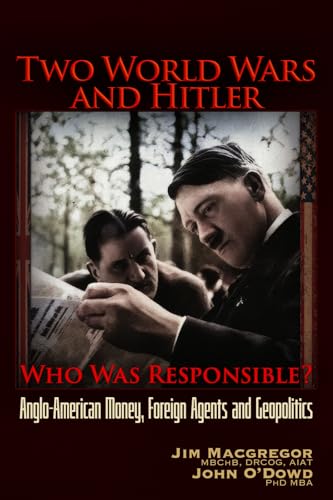
Youth in the Fatherless Land
by Andrew Donson
"War Pedagogy, Nationalism, and Authority in Germany, 1914–1918"
Popularity
0.59 / 5
* A book's popularity is determined by how it compares to all other books on this website.
Where to buy?
Buy from Amazon* If you buy this book through the link above, we may receive a small commission at no extra cost to you.
Youth in the Fatherless Land by Andrew Donson
Details
War:
World War I
Perspective:
Researcher
Biography:
No
Region:
Europe
Page Count:
350
Published Date:
2010
ISBN13:
9780674049833
Description
Main Themes and Topics
Youth in the Fatherless Land by Andrew Donson explores the complex interplay between youth mobilization and political movements in Germany during the First World War. The book delves into how the war era marked the beginning of significant efforts to engage teenagers and schoolchildren in state-building and extreme political ideologies, such as fascism and communism. Donson offers insights into the dual role played by educators who championed youth reform while simultaneously instilling militarism and nationalism in young minds. The narrative stretches across various aspects of youth life, addressing themes like crime, work, gender roles, politics, and everyday social dynamics.
One of the standout features of Donson's work is the detailed examination of Germany's unique position during the war. The book highlights the existence of numerous military youth companies and the world's largest Socialist youth organization, which illegally campaigned for peace and revolution. Donson's exploration extends to the empowerment of female youth within Germany's middle-class movements, which stood in stark opposition to adult authority, a phenomenon not seen in youth movements elsewhere.
Writing Style and Tone
Andrew Donson presents a scholarly yet accessible narrative in Youth in the Fatherless Land. The tone is analytical, supported by extensive research and evidence that provide a robust framework for understanding the multifaceted experiences of German youth during the war. Donson's style facilitates an engaging reading experience, while his thorough analysis allows for a comprehensive understanding of the socio-political developments of the time. His ability to intertwine various social elements—crime, gender, and politics—within the broader historical context adds depth to the narrative.
Brief Summary (no spoilers)
In Youth in the Fatherless Land, Andrew Donson offers a comprehensive history of German youth in the context of the First World War. The book investigates the unprecedented mobilization of children and teenagers for nationalistic and political purposes. It provides a clear picture of the societal and political shifts that occurred as educators and youth organizations worked to ingratiate military and nationalistic values among young people. Donson captures the paradoxical nature of this era, where increased militarism seemingly relaxed traditional forms of discipline, and female youth found empowerment amidst a culture that generally resisted such changes. The book is an in-depth historical account of the efforts and impacts of youth mobilization on the broader societal framework during a tumultuous period.









